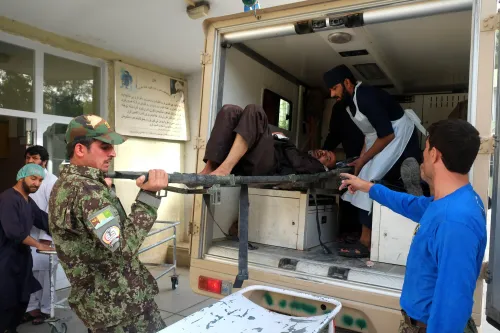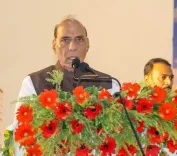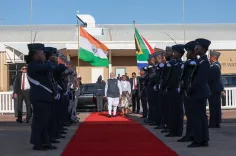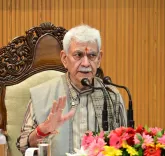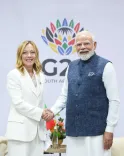Did Nishikant Dubey Expose Congress' Weak Foreign Policy on Canada-Pak-Khalistan Links?

Synopsis
Key Takeaways
- Nishikant Dubey has called out Congress for its historical negligence regarding Khalistani extremism.
- Indira Gandhi's diplomatic efforts with Canada yielded little action against Khalistani terrorists.
- The 1985 Air India Flight 182 bombing remains a significant point of contention in discussions about foreign policy.
- Expert opinions highlight the radicalization of younger Khalistan supporters in Canada.
- The Congress party has yet to formally address Dubey’s accusations.
New Delhi, June 15 (NationPress) Nishikant Dubey, a Member of Parliament from the Bharatiya Janata Party, has reignited the discussion surrounding the Congress party’s historical foreign policy. He has accused the party of negligence and weakness in addressing the growing menace of Khalistani extremism and its international repercussions.
In a recent post on his X handle, Dubey claimed that Canada, in conjunction with Pakistan, has been harboring Khalistani terrorists since the 1970s, without facing significant opposition from the various Congress-led governments over the decades.
Dubey highlighted that from 1970 to 1984, former Prime Minister Indira Gandhi sent seven letters to Canadian Prime Minister Pierre Elliott Trudeau, requesting action against Khalistani elements, but received no substantial response.
He pointed to the notorious case of Talwinder Singh Parmar, a prominent member of the Babbar Khalsa International group, who was reportedly sheltered in both Pakistan and Canada. Despite India’s attempts to secure his extradition in 1980, Parmar evaded capture and later orchestrated the 1985 bombing of Air India Flight 182, resulting in the tragic loss of 329 lives, primarily Canadian citizens of Indian descent.
The Canadian investigation into this bombing only commenced in 2006, with the sole convict, Inderjit Singh Reyat, serving a partial sentence before his release.
Dubey also raised concerns about how Parmar managed to re-enter India in 1992, only to be eliminated in a police encounter in Mumbai, indicating potential lapses in intelligence and border security.
Recent commentary from experts has resonated with Dubey’s assertions. Analysts like Puneet Sahani have warned that Canada’s ongoing tolerance of Khalistani extremism is tarnishing its global reputation and straining diplomatic relations with India.
Sahani pointed out that the younger generation of Khalistan supporters in Canada, many of whom were born outside of India, are becoming increasingly radicalized and politically active, evidenced by public tributes to the deceased separatist Hardeep Singh Nijjar.
The Congress party has taken a cautious stance regarding the escalating diplomatic tensions between India and Canada. Senior leader Jairam Ramesh stressed the importance of bipartisan unity concerning national security and urged the Modi government to involve the opposition in discussions.
Dubey concluded by labeling Congress’ foreign policy legacy as one defined by “weakness and arrogance,” asserting that its inability to act decisively against terrorism has had enduring ramifications for India’s global security framework.
These comments come at a time when there is heightened scrutiny of Canada’s management of extremist networks, alongside renewed calls for international collaboration in counterterrorism efforts.
As of now, the Congress party has not issued an official response specifically addressing Nishikant Dubey’s recent revelations on X regarding the party’s foreign policy and its handling of Khalistani extremism and the 1985 Air India tragedy.
There has been no direct rebuttal or statement from the party or its representatives concerning Dubey’s claims about Indira Gandhi’s correspondence with Canada or the management of Talwinder Singh Parmar.



